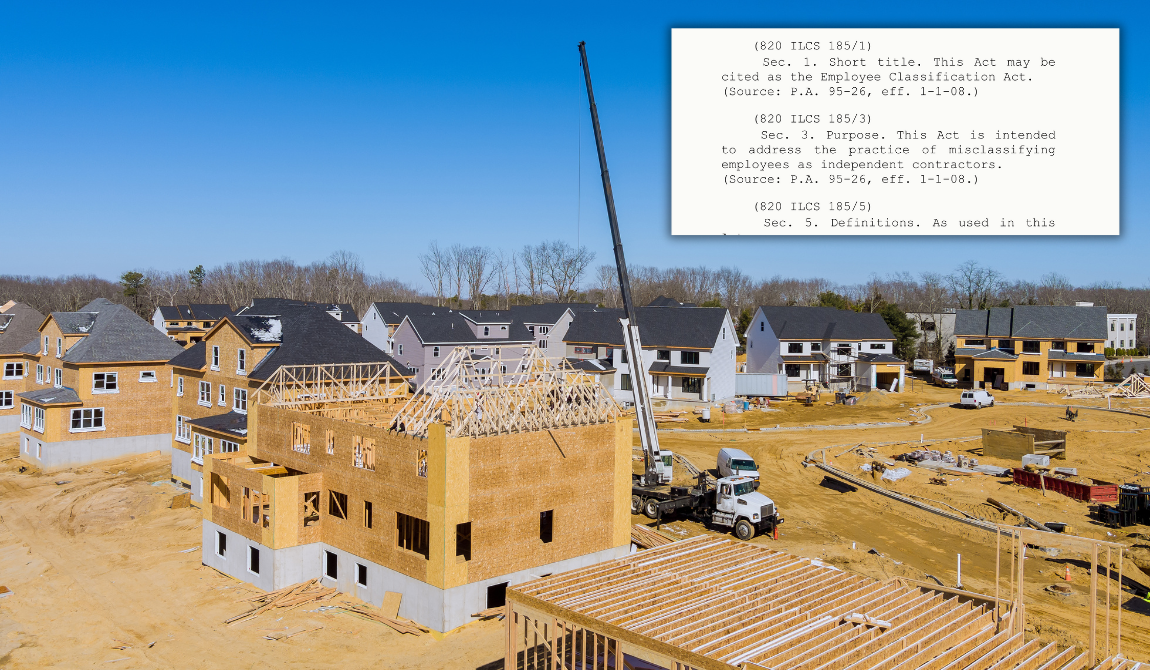Organizers Bring Relief to Residential Tapers: Using State Laws and Attorney General’s Special Unit

A slightly shorter version of this article appeared in a special General Election issue of The Edge, released in the Fall, 2024.
A settlement between the Illinois Attorney General’s office and Elgin-based TBJ Drywall & Taping, Inc. (TBJ) capped off a multi-year campaign by PDC 30’s organizing team to help hundreds of current or former TBJ employees receive the pay they were entitled to under state law.
According to the Attorney General’s office, the settlement announced in late August emerged from a complaint that TBJ misclassified the employees and failed to pay $718,000 in overtime wages.
The settlement demonstrates the way laws adopted by Illinois policymakers and enforced by Illinois’ Executive Branch agencies can address the needs of working people in Illinois and the unions that care for them.
PDC 30’s organizing team met the affected workers in the field, connected them to the Illinois Attorney General’s office, and continued to assist them through the process. “When our team meets workers in the residential sector, we often learn they are misclassified as independent contractors in violation of state law,” says Mandy Jo Ganieany, PDC 30’s Director of Organizing.
By “misclassified,” she is referring to the practice of treating an employee as an independent contractor when they are really an employee in the traditional sense – someone who works under the control or direction of an employer (often called a “W-2 employee”).
Illinois’ Employee Classification Act (820 ILCS 185) addresses the improper classification of persons working in the construction industry by classifying them as independent contractors rather than as employees. Independent contractors direct themselves, perform work that is not the usual services offered by the company that hires them, and own a company hired to perform the work.
When someone is properly classified as an employee, their employer withholds income taxes, pays employment taxes, and makes Social Security and Medicare contributions for employees, and these workers are eligible for legal protections and benefits such as overtime.
Ganieany and her team introduced several of the company’s workers to the Illinois Attorney General’s Workplace Rights Bureau, a special unit the Illinois General Assembly created in 2019 “dedicated to combatting businesses that underpay their employees, force their employees to work in unsafe conditions, and gain an unfair economic advantage by avoiding their tax and labor responsibilities” (15 ILCS 205/6.3).
Also relevant to the investigation is the Illinois Minimum Wage Law (820 ILCS 105/), which requires an overtime premium of 150% of regular hourly wages for each hour over 40 worked in a single workweek.
The outcome of Attorney General’s investigation is especially encouraging at a time of increased collaboration among unions determined to address exploitation in homebuilding.
PDC 30 began a renewed focus on homebuilding industry in 2021, partnering with Chicago-based Painters District Council No. 14 (PDC 14). Both organizations are determined to raise awareness about the problem, particularly as national homebuilding companies are planning to add thousands of new homes to many suburban Chicago areas in the coming years.
What they find in most new home development worksites throughout Northern Illinois, according to both organizations, is a low-wage workforce working long hours throughout the week and into the weekend, with no health insurance or retirement benefits. And, because many are misclassified as independent contractors, they don’t have the protections that W-2 employees count on under state workers compensation or unemployment programs.
The employees involved in the Attorney General’s action were drywall installers, drywall tapers, and painters. None were represented by a labor union; had they been, the installers would be union carpenters and the tapers and painters would belong to a district council affiliated with the International Union of Painters and Allied Trades.
“It’s not uncommon for unrepresented workers to reach out to us when they are having issues with their employer,” says Ryan Anderson, Business Manager for PDC 30. “We will always listen to them and assist them when we can.”
This is where the Attorney General’s Workplace Rights Bureau comes into the picture, acting on behalf of the workers, say union representatives.
“These workers’ story is similar to my story and so many others who hope a construction career will allow them to provide for their families, access quality healthcare, buy a home like the ones they are building, work safely throughout the day, and save for a dignified retirement,” says Ganieany. “It is important for the public to understand that construction work in today’s homebuilding sector often does not live up to those expectations,” she adds.



